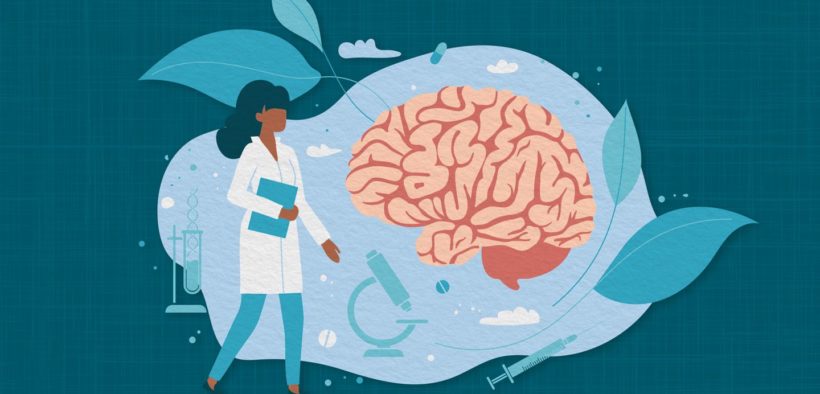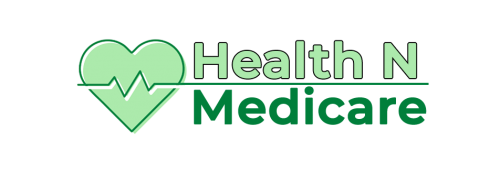In Brief: What You Should Know About Brain Balance Supplements
Share

Whether you enjoy competing or not, you should always give it your all. We lift weights, do stretches, or run on a treadmill to enhance our physical condition, and if we’re not feeling well, we go to the doctor. What if your mental health is in poor condition? You may become frustrated and wonder what is wrong with you if you have difficulty concentrating and paying attention.
You could benefit from learning how to improve brain function. We will highlight crucial aspects to consider if you wish to improve your cognitive abilities in this post. You’re looking for the best nootropic drug for your needs, whether it’s a brain-balance supplement or something else.
Nootropics, sometimes known as “smart pills” or “cognitive enhancers,” are all-natural vitamins that help with brain and cognitive performance. This area includes motivation, attention, creativity, and executive functioning. Coffee and nicotine are two nootropics that you may be familiar with.
Customers may now select from a variety of brain vitamins. These tablets are popular among CEOs, students, and others who work in high-stress environments. But what precisely are they? When looking for the proper partner, it’s easy to feel overwhelmed by the number of options. Like any other purchase, some goods are superior to others. The simplest way to make the best decision is to educate yourself about the medications and their benefits.
Examine the Ingredients
It is critical to understand the components and potential side effects of any supplements you use. Check for potentially harmful substances in the formulation, such as GMOs or certain chemicals. Research may go a long way in this subject. Check to see if the product has undergone scientific testing. If the product you’re considering has yet to be thoroughly vetted, you should be concerned.
When starting off with nutritional supplements, decrease the suggested amount in half to observe how your body reacts. As a result, some long-term consequences and issues may be avoided. Before beginning any new dietary supplement, see your doctor or pharmacist to learn about any potential side effects or how the supplement may interact with any other medications you are already taking.
Examine the Comments
A product’s price does not always represent its quality. Finding a reasonable price is not the best option. High-quality nootropic drugs may be found online, but you must look for them.
When looking, take into account the company’s reviews. You can learn from their postings and conversations with clients if they have a strong social media presence. Consider that some customers are compensated for their evaluations, which may indicate that they aren’t the most trustworthy.
Knowing which supplements will minimize brain fog will be beneficial if you are familiar with the principles. The Cognitive Edge supplement from Sage Nutrients has received multiple excellent reviews. Because they were thoroughly examined before being placed on the market, these tablets are sure to benefit their users. Those that submit reviews report they feel considerably more concentrated after utilizing the product.
Supplements for Mental Fog
Vitamin C
The first thing that comes to mind is the importance of vitamin C to the functioning of your immune system. It may surprise you to hear that vitamin C aids in a range of other biological functions, including brain health.
In a study of 80 healthy persons, those with enough blood levels of vitamin C outperformed those with inadequate amounts of memory, attention, response time, and concentration tests.
Vitamin B Compound
Low or insufficient levels of several B vitamins can cause memory problems, difficulty in concentration, and other symptoms of brain fog.
Fortunately, there are many different sources of B Vitamins, such as nuts and seeds, grains, leafy greens like spinach and kale, legumes and beans, dairy products like cheese or yogurt, certain seafood like salmon or tuna, certain meats like pork or beef, various fruits and vegetables like oranges or bananas, mushrooms, and even brewer’s yeast. With so many alternatives available with varying amounts of the nutritional substance, it is simple to add B Vitamin compounds into any diet.
Magnesium
Magnesium is contained in many foods, including seeds, spinach, and beans. It is required for a number of vital physiological processes, such as energy generation, blood pressure regulation, and enzyme reactions.
Low magnesium levels have been associated with poorer cognitive function and reaction times, as well as an increased chance of developing cognitive impairment later in life, according to a number of studies.
A study of 2,466 people aged 60 and older discovered that individuals with higher magnesium levels performed better on cognitive assessments, such as attention and memory tests, and had a decreased risk of cognitive impairment.
L-theanine
L-theanine is an amino acid found in plants such as green tea. L-theanine supplements have been shown to boost memory, response time, and mental clarity. According to a recent study, a single injection of 100.6 mg of L-theanine improved cognitive function and response speed in 69 persons aged 50 to 69.
D Vitamin
Vitamin D is a fat-soluble molecule that is required for many bodily activities, including the immune system and brain function. A lack of vitamin D can impair memory and worsen symptoms of brain fog. Brain fog symptoms, such as difficulty focusing and memory issues, are typical among unhappy people or those suffering from depression symptoms. Vitamin deficiencies, particularly vitamin D deficiencies, are more common in those who are depressed.
Omega-3 Fatty Acids
You’ve probably heard that omega-3 fatty acids are good for your health and can help reduce inflammation in the body. Concentrated omega-3 supplements may improve mental health and reduce symptoms of brain fog, such as difficulties focusing and remembering things.
One research found that ingesting 1.16 grams of DHA daily for six months improved episodic and working memory when compared to a control group of 176 people who did not eat enough omega-3s.
E Vitamin
Vitamin E, in sufficient quantities, can boost brain health by lowering oxidative stress in the body. DL-Alpha-Tocopherol Acetate, one of the vitamin E components, has antioxidant capabilities that aid in minimizing free radical damage and inflammation. Wheat germ, nuts, seeds, and plant-based oils are rich in vitamin E and should be eaten sparingly. Nutritional supplements are an excellent replacement. Because large amounts of vitamin E can be hazardous, you should consult your doctor before making this decision.
Final Thoughts
Remember that the brain-balancing medicine you purchase should only contain reliable, effective substances with a track record of assisting persons suffering from memory loss and mental fog. Learn more about Sage Nutrients’ Cognitive Edge and how it may assist you when you click here.


















Social Media